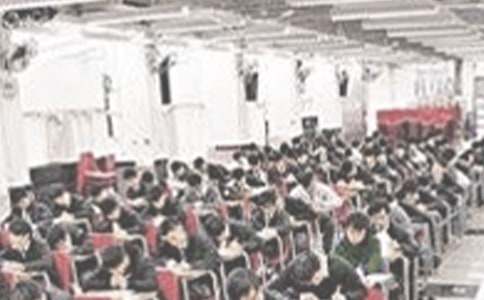- 相關推薦
《1997年10月托福考試閱讀理解全真試題》
Question 1-7

Hotels were among the earliest facilities that bound the
United States together. They were both creatures and creators
of communities, as well as symptoms of the frenetic quest for
community. Even in the first part of the nineteenth century,
Americans were already forming the habit of gathering from all
corners of the nation for both public and private, business and
pleasure purposes. Conventions were the new occasions, and
hotels were distinctively American facilities making conven-
tions possible. The first national convention of a major party to
choose a candidate for President (that of the National Republican
party, which met on December 12, 1831, and nominated
Henry Clay for President) was held in Baltimore, at a hotel
that was then reputed to be the best in the country. The
presence in Baltimore of Barnum s City Hotel, a six-story building
with two hundred apartments helps explain why many other
early national political conventions were held there.
In the longer run, too. American hotels made other national
conventions not only possible but pleasant and convivial.
The growing custom of regularly assembling from afar the
representatives of all kinds of groups - not only for political conventions,
but also for commercial, professional, learned, and
avocational ones - in turn supported the multiplying hotels. By
mid-twentieth century, conventions accounted for over a third
of the yearly room occupancy of all hotels in the nation, about
eighteen thousand different conventions were held annually
with a total attendance of about ten million persons.
Nineteenth-century American hotelkeepers, who were no
longer the genial, deferential "hosts" of the eighteenth-century
European inn, became leading citizens. Holding a large
stake in the community, they exercised power to make it
prosper. As owners or
【《1997年10月托福考試閱讀理解全真試題》】相關文章:
(BEC)高級閱讀全真試題05-04
(BEC)中級閱讀全真試題05-04
1997年5月托福閱讀全真試題04-23
劍橋商務英語BEC中級閱讀全真試題05-04
BEC中級全真試題05-04
最新六級710分全真模擬試卷--閱讀理解05-04
考研英語真題閱讀理解試題及解析11-19
語文閱讀理解類試題答題思路淺談04-29
四年級英語閱讀訓練全真試題05-27
小升初數學全真模擬試題05-02